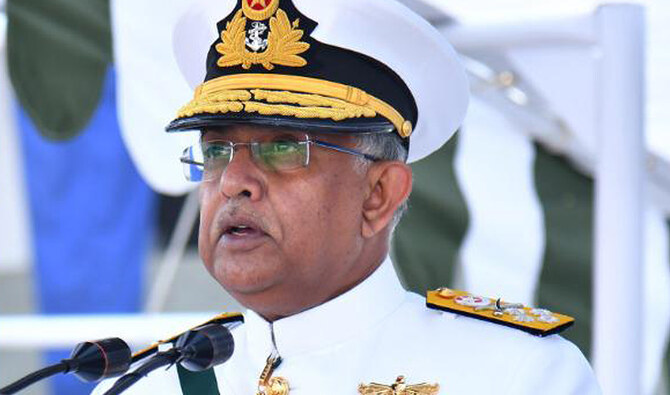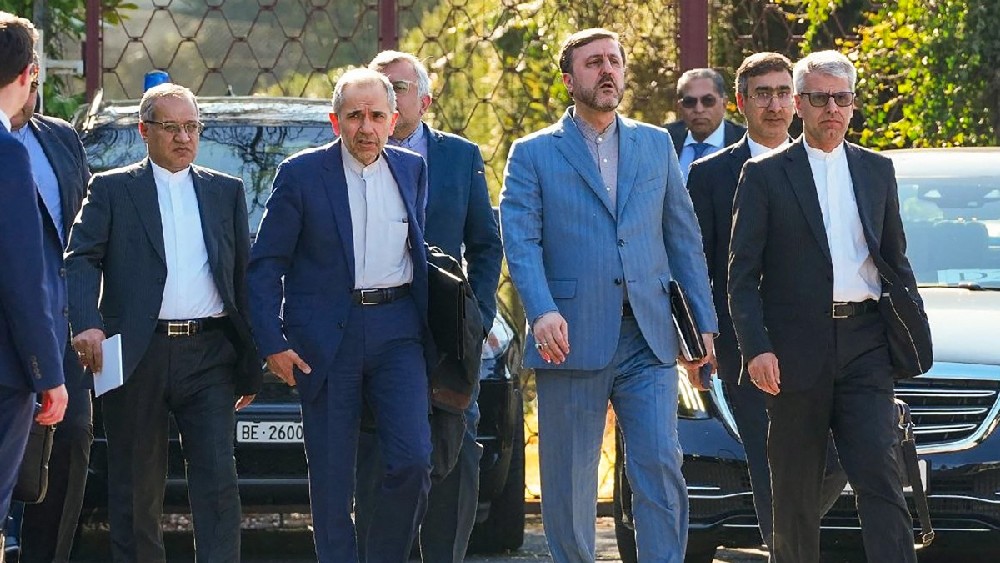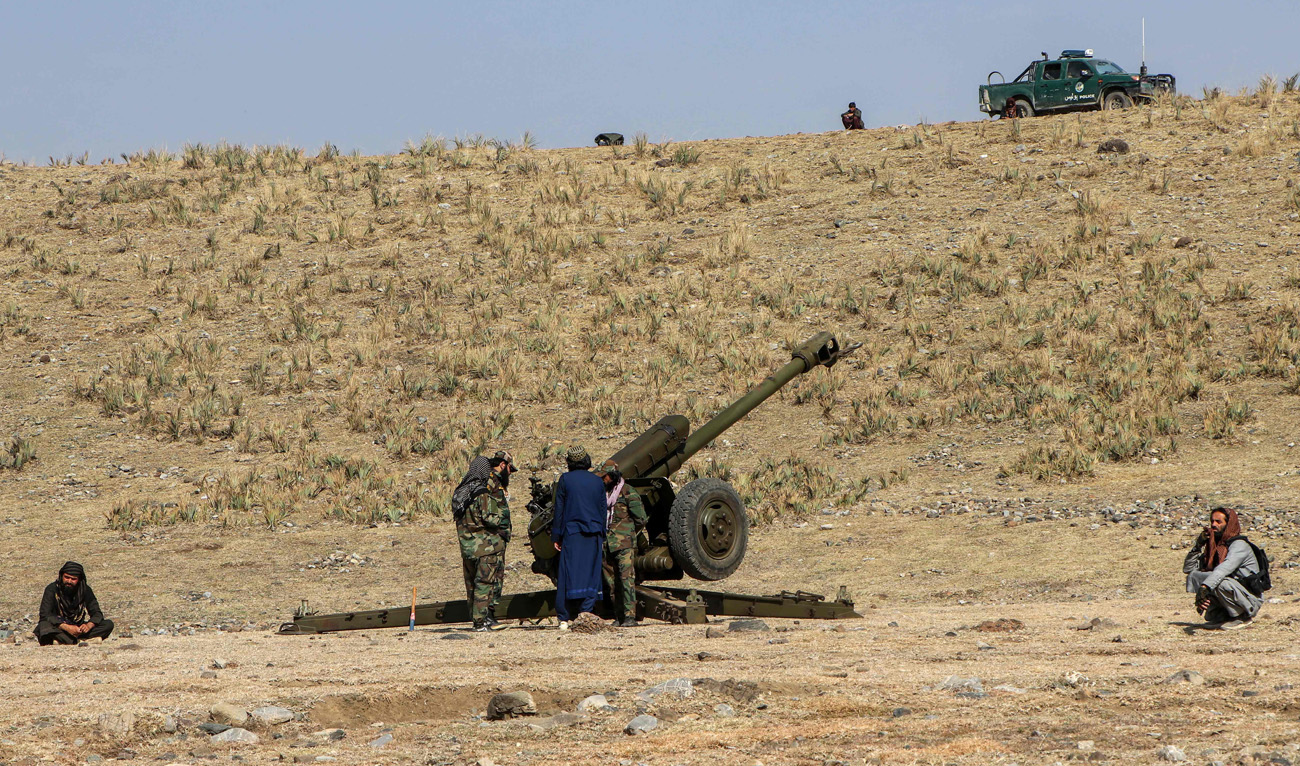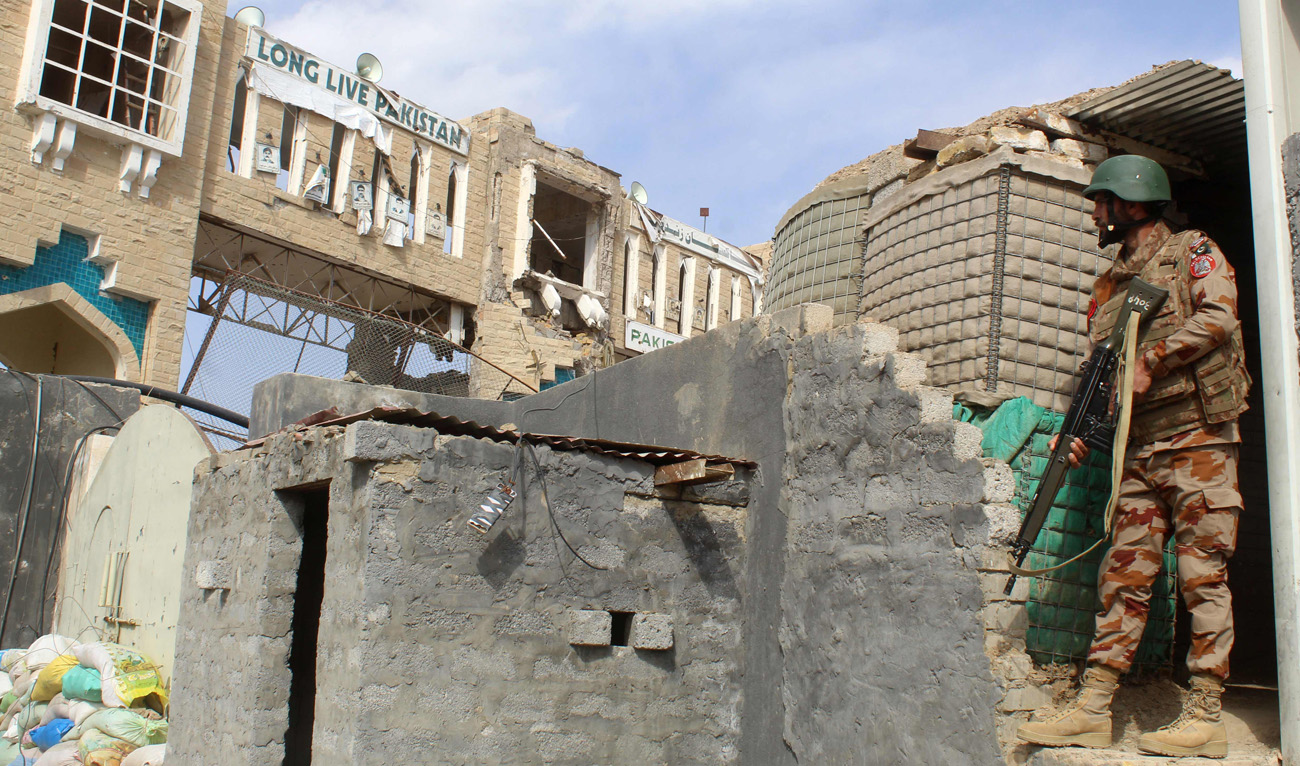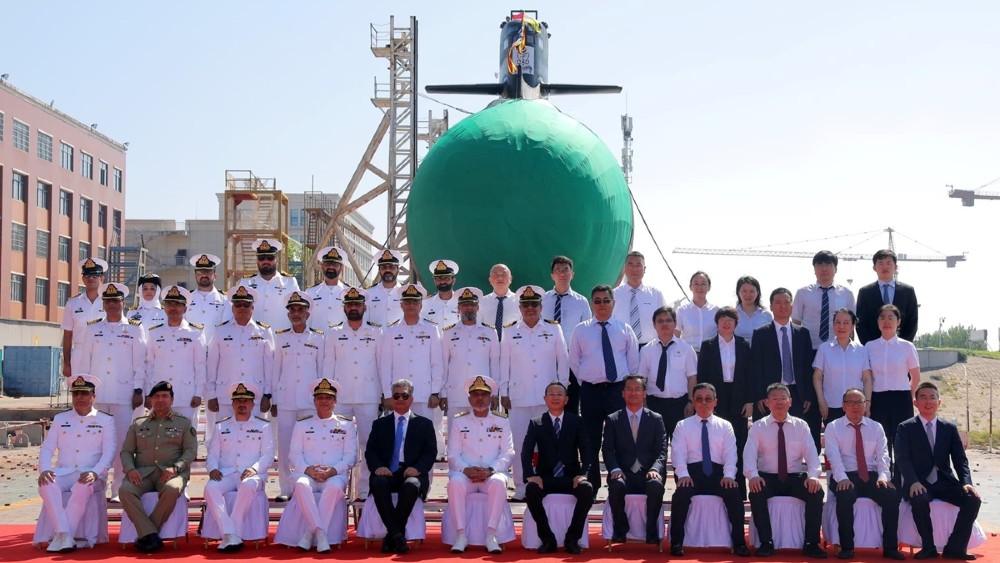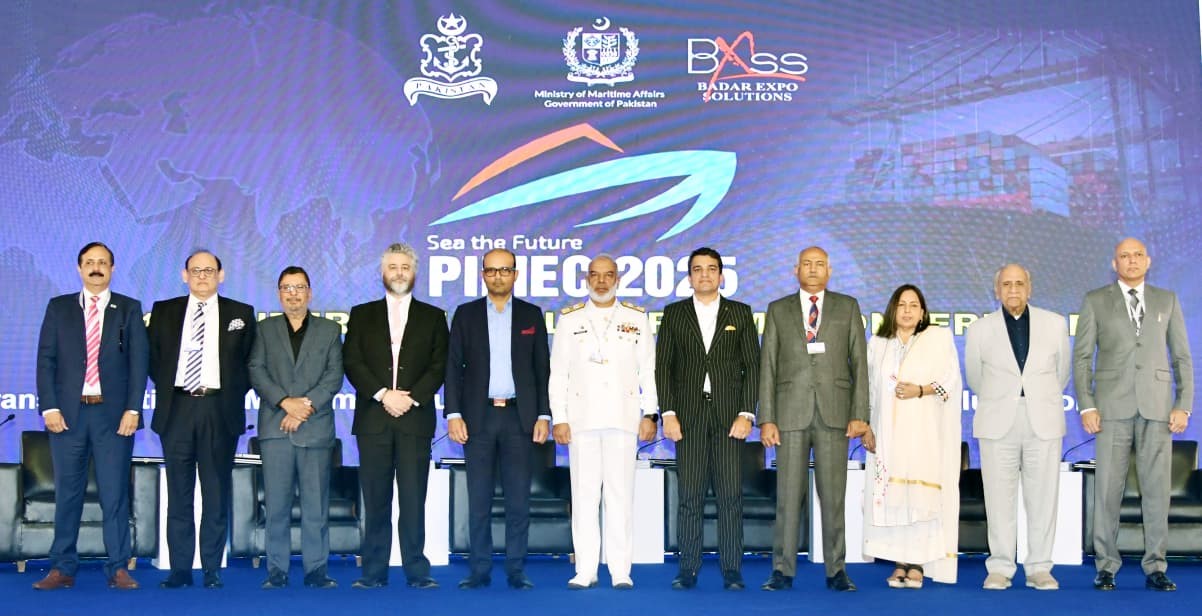ISLAMABAD: Pakistan Navy chief Admiral Naveed Ashraf has said that collaboration with Ankara has “significantly strengthened” Islamabad’s local industrial base.
He said this in an exclusive interview with Türkiye’s state-run Anadolu News Agency, shared by Pakistan Navy’s Director General Public Relations (DGPR), on its X account on Friday.
Admiral Ashraf said Pakistan’s fast-growing defense partnership with Türkiye has become one of the region’s most prominent examples of successful technology transfer.
He said cooperation between the two countries has already “significantly strengthened” Islamabad’s domestic industrial capacity.
The chief said the collaboration, especially in naval shipbuilding, demonstrates how shared ambitions for self-reliance can translate into concrete industrial gains.
‘Success story’
At the center of this “success story,” he noted, is the joint production of MILGEM-class corvettes, one of Pakistan’s largest defense projects involving a foreign partner.
MILGEM is Turkey's indigenous national warship building program.
Admiral Ashraf described the program as a “living example of this cooperation.”
Under a 2018 agreement, Pakistan acquired four MILGEM corvettes from Türkiye’s state-owned defense company, ASFAT: two built in Türkiye and two constructed at Karachi Shipyard & Engineering Works, a model designed to transfer design, engineering, and project management expertise to Pakistan.
Calling the initiative a “hallmark of Pakistan-Türkiye defense collaboration and technology sharing,” Admiral Ashraf said the program has “significantly strengthened” Pakistan’s local industrial base, “paving the way for future self-reliance in naval shipbuilding.”
‘Practical and mutually beneficial’
With the experience gained, he added, Islamabad and Ankara can “build on this success to explore joint development of unmanned maritime systems, underwater technologies, and advanced sensors.”
Türkiye and Pakistan’s “shared commitment to self-reliance and innovation” makes such partnerships “practical and mutually beneficial,” he said.
Admiral Ashraf also emphasized that cooperation is not only technical but strategic, noting that maritime security in the current geopolitical environment requires “cooperation against shared challenges.”
‘Common goals’
“We view Türkiye’s engagement in the region as complementary to our vision of a secure maritime environment for economic prosperity,” he said, referring to Ankara’s expanding naval influence in the Indian Ocean and East Africa.
“Both navies share common goals viz-a-viz regional stability, maritime connectivity and cooperative security; our regular interactions strengthen these shared objectives,” he added.
Pakistan’s navy, Admiral Ashraf said, plays “a key role in ensuring regional maritime security and safeguarding the maritime domain connected with CPEC,” the China-Pakistan Economic Corridor.
Conference to ‘rejuvenate’ maritime economy
Admiral Ashraf also highlighted Pakistan’s efforts to revive its blue economy, an area where he said Islamabad and Ankara “share a strong and enduring partnership.”
Speaking about the second edition of the Pakistan International Maritime Expo and Conference (PIMEC), held earlier this month in Karachi, he said the event aimed to “rejuvenate” maritime economic activities and showcase the country’s broader “maritime potential.”
Beyond shipbuilding, the navy chief noted that Pakistan is “progressively incorporating” emerging domains such as information dominance and cyber resilience into its training, doctrines, and joint exercises.
“Collaboration with friendly navies like Türkiye helps both sides build skills in network-centric warfare, electronic warfare operations and modern concepts, ensuring preparedness against evolving threats,” he said.

